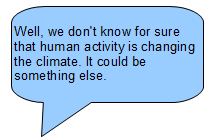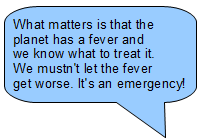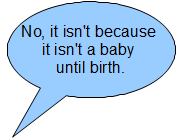In The Political Brain, Drew Westen correctly points out that the phrase global warming does not convey the urgency of the problem:
“Warming” has positive connotation, suggesting, at worst, the need for a little extra sub block. “Greenhouse gases” sound like a problem a florist might worry about as Valentine’s Day approaches or something generated by tainted spinach. And for most people, dire warnings about the ocean getting a degree or two warmer let to little more than the thought, “Good, maybe the ocean won’t be so cold on Memorial Day weekend.”
But two features of [Al] Gore’s presentation [An Inconvenient Truth] changed all that. The first was his evocative choice of words. He talked about a “climate crisis”–a phrase with very different connotations than “global warming”–and he ended the film with stirring words about the earth that were anything but abstract: “This is our only home.“
The climate crisis is an emergency that demands swift action. As Grist.org reported in 2009, the scientific journal Nature specified a “safe operating space for humanity” with indicators estimating how close to Earth’s boundaries for supporting life we are.
Check out the thermometers in the Grist article! They show that Earth is already past the tipping points for “climate change” (another phrase to avoid), biodiversity loss, and the nitrogen cycle and have reached tipping points for ozone depletion and ocean acidification.
In addition to talking about climate crisis, progressives should use the title of the thermometer graphic: “The planet has a fever.” When someone has a fever, he or she needs care and needs it now, not when we can fit it into our schedule.
A great thing about the fever metaphor is that it doesn’t matter who caused the fever; what counts is accurate diagnosis and prompt treatment. When denialists claim,  , progressives could reply,
, progressives could reply, 
What do you think? Does global warming need a reframe? What do you think of “climate crisis” and the fever metaphor? What would you suggest?



